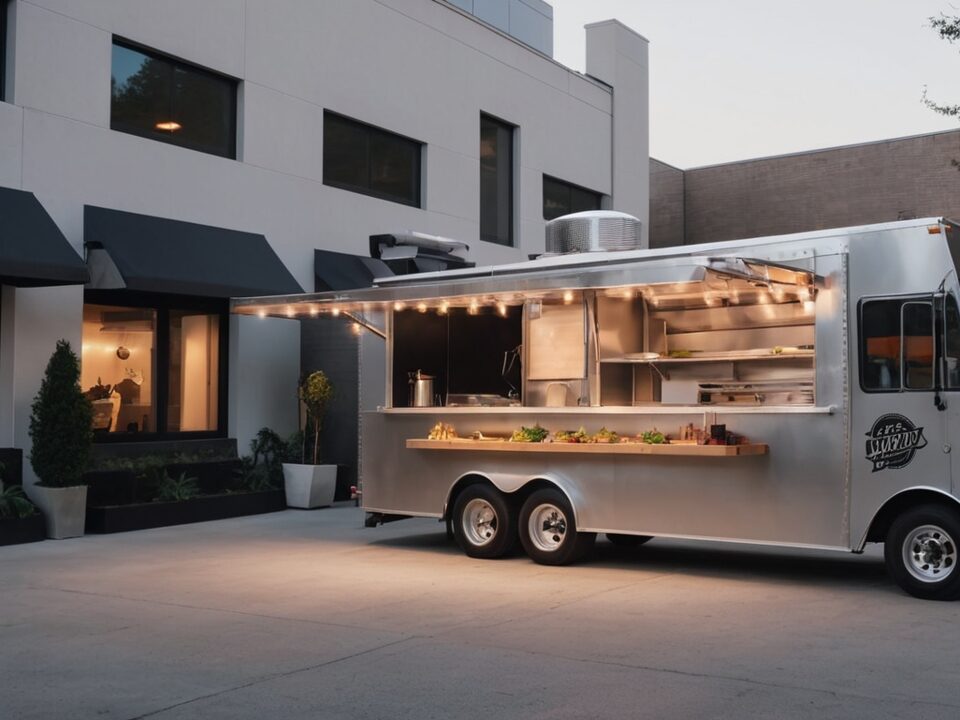
What Is Mobile Grill Catering?
July 27, 2025
A Culinary Journey: Turning Simple Ingredients into Lasting Memories 2025
August 26, 2025Introduction:
Renting a food truck means utilizing a specialized vehicle designed for preparing and serving food at various events, festivals, or even for commercial activities. This process allows entrepreneurs and food business owners to offer their products to customers without the need for investing in a permanent restaurant. In this article, we will explore the details of renting food trucks, the advantages and challenges associated with it, and key tips for succeeding in this business.
Advantages of Renting a Food Truck
Renting a food truck offers several advantages for entrepreneurs looking to enter the food industry. rent a food truck One of the most significant benefits is the lower initial investment compared to starting a traditional restaurant. With a food truck, you can avoid high rental costs and extensive renovations associated with brick-and-mortar establishments. This financial flexibility allows you to allocate more resources toward inventory and marketing, increasing your chances of success in a competitive market.
Another advantage of renting a food truck is the ability to reach a diverse customer base. Food trucks can be parked at various locations, such as festivals, markets, and corporate events, allowing you to tap into different demographics. This mobility enables you to gauge customer preferences in real-time and adjust your menu accordingly rent a food truck. For instance, if you notice that a specific dish is popular at a particular event, you can focus on promoting it in future locations.
Moreover, renting a food truck provides operational flexibility.rent a food truck You can choose your operating hours and locations, allowing you to cater to events or areas with high foot traffic. This flexibility not only helps in maximizing sales but also allows you to adapt to seasonal trends or special occasions. For example, during summer festivals, you can adjust your menu to include refreshing items like salads and cold beverages, attracting more customers rent a food truck.
Key Considerations for Renting a Food Truck
When considering renting a food truck, there are several key factors to take into account. First and foremost, it’s essential to research and choose a reputable rental company. Look for companies that specialize in food truck rentals and have a solid track record of providing well-maintained vehicles. Checking reviews and asking for recommendations can help you find a reliable provider that meets your needs.
Another crucial consideration is the type of food truck you need.rent a food truck Different trucks come equipped with various kitchen appliances and layouts. Depending on your menu, you may require specific equipment such as grills, fryers, or refrigeration units. Ensure the food truck you rent has the necessary amenities to prepare and serve your dishes efficiently. rent a food truck Additionally, consider the size of the truck in relation to your expected volume of customers; a larger truck may be necessary for high-traffic events rent a food truck.
Budgeting is also a significant factor when renting a food truck. Besides the rental fee, you’ll need to account for other expenses such as permits, insurance, and operating costs like fuel and maintenance. It’s essential to create a comprehensive budget to avoid unexpected financial pitfalls. Proper financial planning will help you determine if renting a food truck is a viable option for your food business.
Challenges of Renting a Food Truck
rent a food truck While renting a food truck has many advantages, it also comes with its challenges. One of the most significant hurdles is navigating the various regulations and permits required to operate a food truck legally. rent a food truck Different cities and states have specific laws governing food trucks, including health codes, parking restrictions, and licensing requirements. It’s crucial to familiarize yourself with these regulations to avoid fines and ensure smooth operations.
Another challenge is competition in the food truck industry. With the growing popularity of food trucks, many entrepreneurs are entering the market, making it more difficult to stand out. rent a food truck To succeed, you’ll need to develop a unique selling proposition (USP) that differentiates your food truck from others . rent a food truck This could involve offering a niche cuisine, exceptional customer service, or creative marketing strategies that attract attention and drive sales.
Lastly, operational challenges can arise when managing a food truck. Unlike a traditional restaurant, food trucks have limited space and resources, which can complicate food preparation and service. You may need to streamline your menu to focus on a few high-quality dishes that can be prepared quickly and efficiently. Additionally, managing staff and coordinating logistics during events can be challenging, requiring strong organizational skills and effective communication rent a food truck.
Regulations and Compliance for Food Trucks
Understanding the regulations and compliance requirements for food trucks is crucial for successful operation. Each city or state has its own set of rules governing food truck operations, including health and safety standards. Before renting a food truck, you must research the specific regulations applicable to your area. This research can help you identify the necessary permits, licenses, and inspections required to operate legally.
One critical aspect of compliance is obtaining the necessary health permits. Food trucks must adhere to strict health codes to ensure food safety and hygiene. This often involves regular inspections by health officials to verify that your truck meets the required standards. Failure to comply with these regulations can result in fines or even the closure of your food truck, making it essential to prioritize health and safety practices.
Additionally, parking regulations can vary significantly based on local laws. Some cities have designated areas where food trucks can operate, while others may impose restrictions on parking times or require special permits for certain locations. Understanding these parking regulations is vital to avoid fines and ensure you can serve customers effectively. Staying informed about local regulations will help you navigate the complexities of operating a food truck successfully rent a food truck.
Conclusion:
Renting a food truck is an excellent strategy for entering the food and beverage industry. This option provides entrepreneurs the flexibility to offer their products with lower costs and greater mobility. However, being aware of the challenges and regulations associated with this field is essential for success in this business.
Meta Description:
Renting a food truck allows for food service at events and commercial activities. This article explores the advantages, challenges, and key considerations for renting food trucks.



